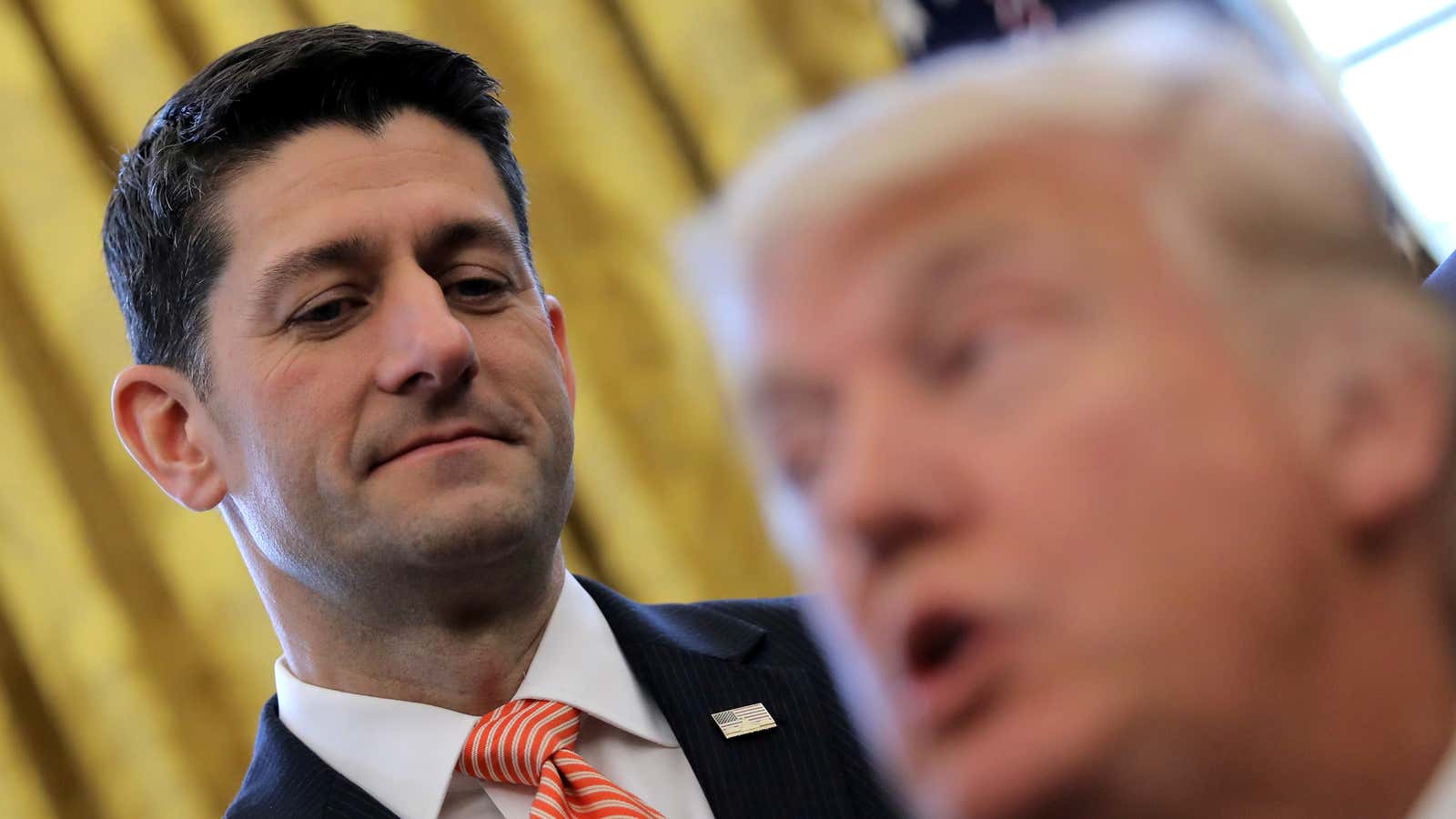US president Donald Trump is already clashing with his own party over their plan to overhaul the corporate tax code, in part because their strategy to tax imported goods is causing indigestion at major American companies.
Trump has called for tariffs on certain imports, but House Republicans have a different plan in mind: They want to flip the US corporate tax system from one that taxes profits to one that taxes domestic consumption. To do this Republicans hope to implement a border adjustment tax (BAT) to keep jobs from fleeing overseas, as we’ve explained in some detail.
Proponents of the tax say importers shouldn’t fear the plan because the dollar will strengthen under this new tax, easing their losses. Others are skeptical that currency exchange rates would simply adjust to a level that would offset the higher price of imports, regardless, the tax would likely create major incentives for companies to make costly changes to where they obtain their products.
Yesterday, Trump met with a bunch of retailers, including the CEOs of Target, J.C. Penney, Best Buy, Gap and AutoZone. Doubtless they pointed out what the chart below confirms: Their businesses selling clothing, electronic goods and auto parts depend significantly on imports, and they’d rather not see the effective cost of these key goods increase.
So far, Trump has a shown a remarkable deference to businesses concerned that policy changes will raise the cost of doing business. That’s one reason that Wall Street analysts argue that there is little chance of moving the tax overhaul forward. The White House, led by national economic council chair Gary Cohn, is putting together its own tax reform plan that relies on closing loopholes and lowering rates to create efficiency, and likely including a “repatriation holiday” that would give companies avoiding taxes on overseas profits a brief window to bring home money at ultra-low tax rates.
The problem with these ideas is that they have been tried: Base-broadening tax reform has been something of a non-starter because it preserves many of the same problems in the current tax system; few loopholes are likely to be closed and the incentive to hoard money overseas remains. When president George W. Bush tried a repatriation holiday in 2004, very little money was invested in the US and profit-shifting only increased.
That’s why House Republicans are convinced that their radical overhaul is the only way forward.
“I don’t know any other way to do it. We’ve long looked at this. We’ve had exhaustive hearing after hearing after hearing for eight years,” Republican Rep. Devin Nunes told CNBC on Feb. 14. “The only way we can get our tax code into the 21st century and make America the most competitive place on the planet is to move to a full consumption-based system,” which means border adjustment.
House Speaker Paul Ryan has embraced Trump’s presidency, chaos, warts and all, because he needs a president who will sign off on Republican priorities that were dormant during the Obama administration. But his putative ally in the White House might not be on the same page.
